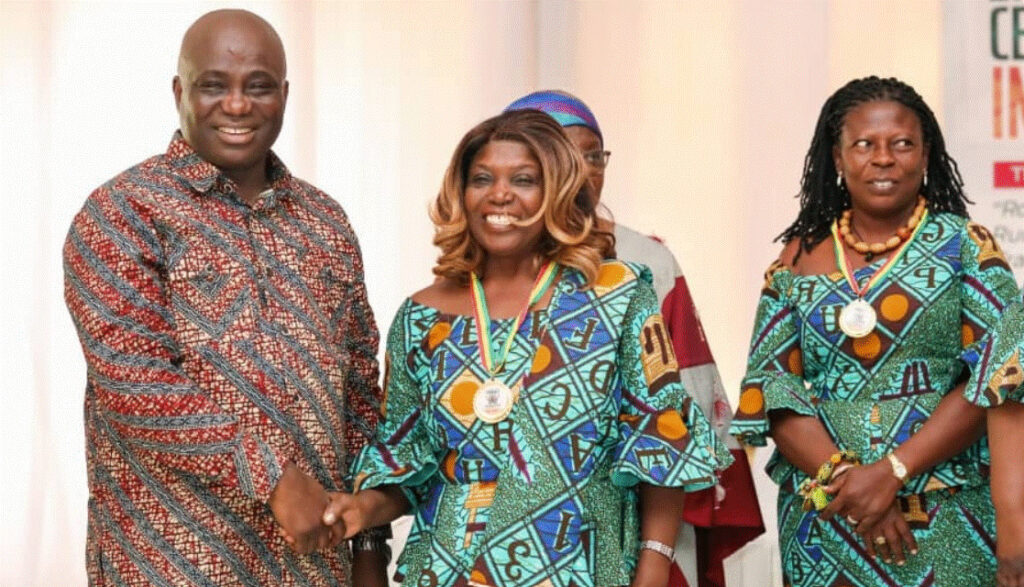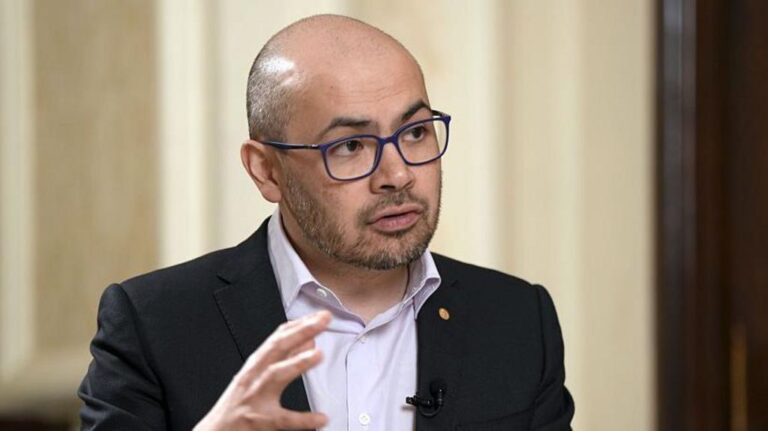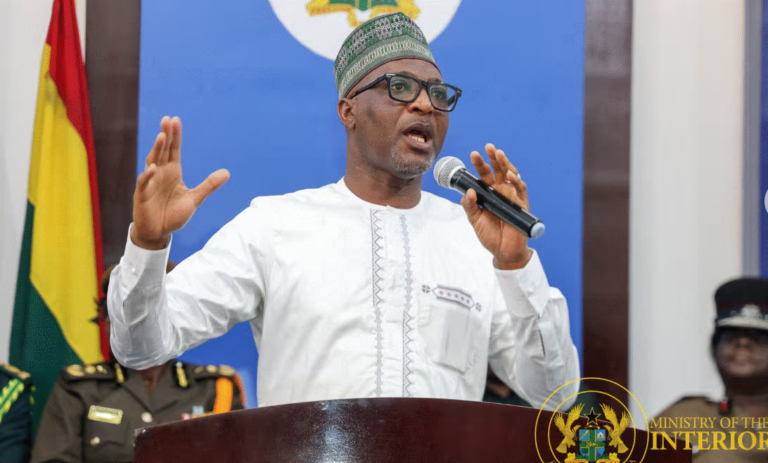

Transformation of Ghana’s agriculture will not be complete without active involvement of women declared the Agric Minister, Eric Opoku, as he addressed the 2nd Annual General Meeting and induction ceremony of the Ghana Association of Female Agricultural and Fish Farmers Award Winners (GAFAFAW) in Accra. Speaking on 15 October 2025 under the theme “Rooted in Experience, Rising in Leadership: Rural Women at the Heart of Agricultural Transformation,” he stressed that women’s leadership and participation are essential to achieving national food security and sustainable growth.
Women as Pillars of Ghana’s Agricultural Economy
Minister Opoku paid tribute to rural women who form the backbone of Ghana’s agricultural economy. He noted that women account for nearly 50 per cent of the agricultural labour force and are responsible for up to 70 per cent of food production at the smallholder level. Beyond cultivation, they undertake processing, marketing and household food provision. “Their leadership, dedication and expertise are vital to building a resilient, inclusive agricultural sector,” he said.
Despite this, official statistics show that women receive less than 20 per cent of agricultural extension services, own only 15 per cent of land titles, and face significant obstacles in accessing credit, inputs and markets. The minister highlighted this gender gap as a barrier to national productivity and pledged to address it under the Agriculture for Economic Transformation Agenda (AETA).
The Feed Ghana Programme and AETA
Under AETA, the government launched the Feed Ghana Programme in early 2024, with a specific pillar targeting women’s empowerment. Minister Opoku outlined four key interventions:
- Access to Modern Farming Technologies
Distribution of subsidised equipment—such as power tillers, solar-powered irrigation kits and post-harvest dryers—to women’s cooperatives. Trial deployments in the Volta and Brong Ahafo regions increased yields of maize and cassava by an average of 25 per cent. - Strengthened Extension Services
Recruitment and training of 500 additional extension officers with gender-sensitivity modules. Mobile outreach units now conduct monthly on-farm demonstrations on climate-smart practices, pest management and soil health. - Value Addition and Agro-processing
Grants and technical support for 200 women-led micro-processing enterprises turning tomatoes, mangoes and shea nuts into packaged products. These enterprises have created over 3 000 direct jobs and expanded export earnings by GHC 15 million in 2024. - Market and Financial Access
Partnerships with rural banks and microfinance institutions to offer low-interest loans tailored for women. The programme also established market-linkage platforms connecting women’s producer groups with urban and export buyers, reducing post-harvest losses by 18 per cent.
Celebrating GAFAFAW’s Achievements
GAFAFAW, founded in 2023, has rapidly grown into a national voice for female farmers and fishers. Its advocacy led to the inclusion of a gender chapter in Ghana’s new National Agricultural Policy. The association has also mentored over 5 000 smallholder women through farm business clubs, equipping them with budgeting skills, record-keeping techniques and leadership training.
At the AGM, GAFAFAW presented awards to five outstanding members who have demonstrated innovation in fish processing, organic vegetable production, and cooperative marketing. One awardee, Madam Amina Sule, showcased a solar-drying tunnel that extends shelf-life of smoked tilapia by two weeks, reducing spoilage and increasing income by 40 per cent.
Voices from the Field
Members spoke of the tangible impact of government and association partnerships. “Before joining GAFAFAW, I relied on manual methods that limited my cassava yield,” said Patricia Amankwah from the Ashanti Region. “Now, through the Feed Ghana Programme, I use a motorised gratin machine and sell high-quality gari to Accra markets.”
Another participant, fish farmer Grace Mensah of the Central Region, described how access to cold-chain equipment helped her extend the market radius for fresh tilapia, tripling her revenue in one season.
Strengthening Climate-Smart Agriculture
Climate variability poses a serious threat to women farmers, who often have fewer buffers against drought and flooding. Minister Opoku committed to scaling up climate-smart agriculture initiatives, including drought-tolerant seed distribution and community-based weather forecasting. He urged GAFAFAW to expand its network of demonstration plots to showcase soil conservation and integrated pest management techniques.
Looking Ahead: Policy and Collaboration
Eric Opoku announced plans to establish a Women in Agriculture desk within MoFA, staffed by gender specialists who will monitor programme outcomes and coordinate inter-ministerial efforts. He also invited development partners, private sector actors and NGOs to invest in women-led agribusiness. “When women succeed, entire communities prosper,” he said.
GAFAFAW president Madam Lydia Boateng pledged to work closely with MoFA to track progress and deliver regular feedback from members. She called on district assemblies to allocate land reserves for women’s cooperatives and expedite issuance of group titles.
Conclusion
The minister’s address at the GAFAFAW AGM underscored a clear message: Ghana’s goal of transforming agriculture into a driver of inclusive growth will remain elusive without full and active involvement of women. Through targeted interventions under the Feed Ghana Programme and strong collaboration with associations like GAFAFAW, the government aims to unlock women’s potential, boost productivity and ensure a food-secure future for all Ghanaians.



